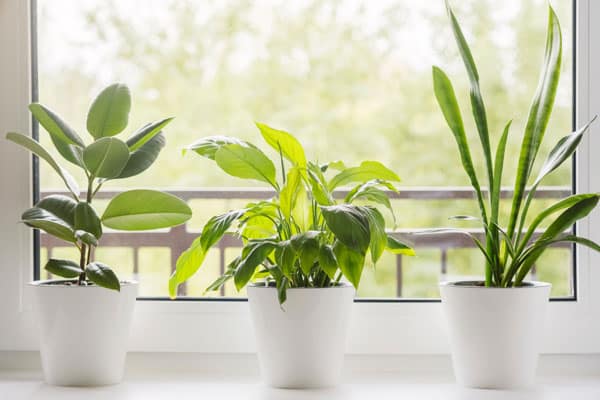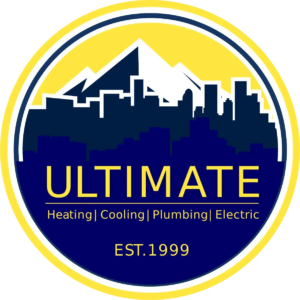Many homeowners worry about air quality in their homes. Exposure to polluted air can cause a variety of health issues, including dizziness, fatigue, headaches, asthma, and other respiratory irritations. Americans spend about 90 percent of their time indoors, where the concentrations of some pollutants are often 2 to 5 times higher than outdoors.
To protect yourself and your loved ones, especially those who are most susceptible such as children, the elderly, and those with respiratory illnesses, it is important to learn how to improve the air quality in your home. In this blog post, we will cover the top five tips to help you breathe easier.
Tip #1: Use an Air Purifier
Air purifiers are a great way to improve the air quality in your home. They work by removing harmful particles from the air, such as dust, pollen, and pet dander. The benefits of an air purifier include reducing allergies and asthma symptoms, eliminating lingering odors, removing airborne bacteria and viruses, and even minimizing the risk of respiratory illnesses.
Be sure to use an air purifier with a HEPA filter. HEPA filters trap particles by forcing air through a fine mesh that catches particles as small as 0.3 microns. This is especially important when it comes to small particles that can be harmful to our health, such as dust, pollen, and even viruses. HEPA filters can remove 99% of harmful particles from the air, making them one of the most effective types of air filters available.
Tip #2: Replace Air Filters
Next, you should frequently replace the air filters in your HVAC system. Air filters help to trap dirt, dust, and other airborne particles, preventing them from entering your HVAC system and circulating around your home. Over time, these filters become clogged or warped, making air circulation around your home inefficient. To keep your air filters in top condition, consider signing up for a maintenance program that includes regular air filter replacement, among other routine maintenance. The standard recommendation is to replace air filters every 90 days in order to ensure optimal air quality.
Tip #3: Clean and Declutter
Dust and other particles can accumulate in hard-to-reach spots, such as high shelves and tight corners, especially in cluttered areas. To decrease the pile-up of dust and keep your home clean and healthy, it is essential to take preventative measures. One of the most effective ways to do this is to remove unnecessary items from your home. This not only creates more open space but also reduces the number of surfaces on which dust can accumulate.
Homeowners should consider dusting once a month, with a deep dusting every three months which includes dusting surfaces, wiping down furniture, and vacuuming or sweeping floors. It is important to use cleaners that are specifically designed to trap dust and other particles rather than just moving them around temporarily. For example, use a damp cloth instead of a dry one when cleaning surfaces to help to trap the dust and prevent it from accumulating in the air. Doing so will help to keep your home cleaner for a longer period of time and will also help to reduce the amount of dust and other particles that can cause allergies and other respiratory issues.
Tip #4: Choose Cleaning Products Wisely
When cleaning your home, choose your cleaning products carefully. Try to avoid toxic cleaners, degreasers, varnishes, glue, paint, polishers, and scented items like candles, air fresheners, or diffusers that may contain volatile organic compounds (VOCs). These chemicals release pollutants into the air and contribute to indoor air pollution. Instead, opt for natural and non-toxic cleaning products. Look for labels like “non-toxic,” “free of VOCs,” “eco-friendly,” or “natural.” You can also make your own cleaning products using simple ingredients like baking soda, vinegar, and lemon juice. Mixing your own cleaning products is a great way to reduce your exposure to harsh chemicals while still keeping your home clean and fresh.
Tip #5: Focus on the Floors
One critical factor in maintaining a healthy indoor environment is keeping your floors clean. Particles such as dust, dirt, and allergens can quickly accumulate on the floor, especially on rugs or carpeting. These particles don’t just make your home look dirty but can also negatively affect the air quality, leading to respiratory issues for some people. Vacuuming regularly is crucial to keep your floors clean and free of pollutants, especially if you have pets since they can carry dander that triggers allergies or asthma.
In addition, consider taking your shoes off before entering your home and placing doormats at all entryways to capture dirt and debris before it enters your home. Doing so can help prevent dirt and other contaminants from being tracked in from the outside, which contributes to the buildup of dust and allergens on your floors.
Enjoy Healthy Living with Clean Air
Keeping your indoor air clean is essential for maintaining good health. Polluted indoor air can lead to serious health problems such as respiratory issues, asthma, headaches, and allergies. Improving the air quality in your home is similar to exercising; it requires effort and dedication, but the end result is a healthier and more enjoyable life. If you’re still worried about the air quality in your home, contact a professional for testing and advancements. Enjoy breathing easier in your healthy home!
Contact us [theme_company_telephone] to test and improve your home’s air quality.


